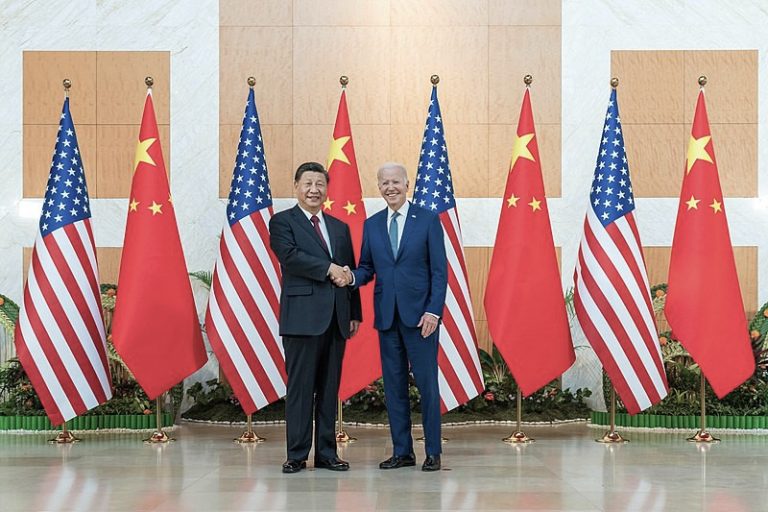On August 9, U.S. president Joe Biden signed an executive order restricting U.S. investments in China’s semiconductor and microelectronics, quantum information technologies and artificial intelligence (AI) sectors, angering the communist nation.
“The Biden Administration is committed to keeping America safe and defending America’s national security through appropriately protecting technologies that are critical to the next generation of military innovation,” the Treasury Department said in a statement.
Chinese authorities immediately lashed out, saying that the order “seriously disrupts the security of the global industrial and supply chains,” but stopped short of concrete retaliation instead saying that China “reserves the right” to respond appropriately.
China’s Commerce and Foreign Affairs ministries issued statements blasting the order as well.
According to a translation by CNBC, China’s Foreign Affairs Ministry said in a statement, “China is strongly dissatisfied with and resolutely opposed to the U.S.’s insistence on introducing restrictions on investment in China,” adding that, “This is blatant economic coercion and technological bullying.”
Success
You are now signed up for our newsletter
Success
Check your email to complete sign up
China’s Washington ambassador, Liu Pengyu, blasted the order as well telling CNBC, “The latest investment restrictions will seriously undermine the interests of Chinese and American companies and investors, hinder the normal business cooperation between the two countries and lower the confidence of the international community in the U.S. business environment,” adding that Beijing will monitor the situation and called on Biden to stop trying to “halt Chinese economic development.”
READ MORE:
- French Company Smuggled Military Chips to China and Russia, Investigation Alleges
- Japan Aligns With the US, Imposes Export Controls on Chip Making Equipment to China
- Biden Admin Likely to Blacklist NVIDIA AI Chip Exports to China
Full-blown tech war
Biden’s executive order is but the latest in a series of actions aimed at redefining America’s relationships with China in regards to technology, and places the two nations firmly in the realm of a full-blown tech war.
Many point to Trump era tariffs as the catalyst for the conflict. On July 6, 2018 Trump imposed a 25 percent tariff on US$34 billion worth of Chinese imports, saying the U.S. had to “rebalance” a growing trade deficit with China.
This was followed by more tariffs in both 2018 and 2019 and in October, 2022 the U.S. enacted a new set of export controls, that many say were designed to cripple China’s future progress in the artificial intelligence field.
The export controls hinder China’s access to computer chip hardware required for AI applications.
In March, 2023, U.S. allies Japan and the Netherlands implemented export controls, targeting China, on advanced semiconductor manufacturing equipment, deepening the crisis for the communist nation.
The Netherlands produces around 90 percent of all equipment worldwide required for the manufacturing of semiconductors.
With the three countries aligning on the issue, China is unable to purchase both American chips as well as the equipment required to make Chinese alternatives.
















